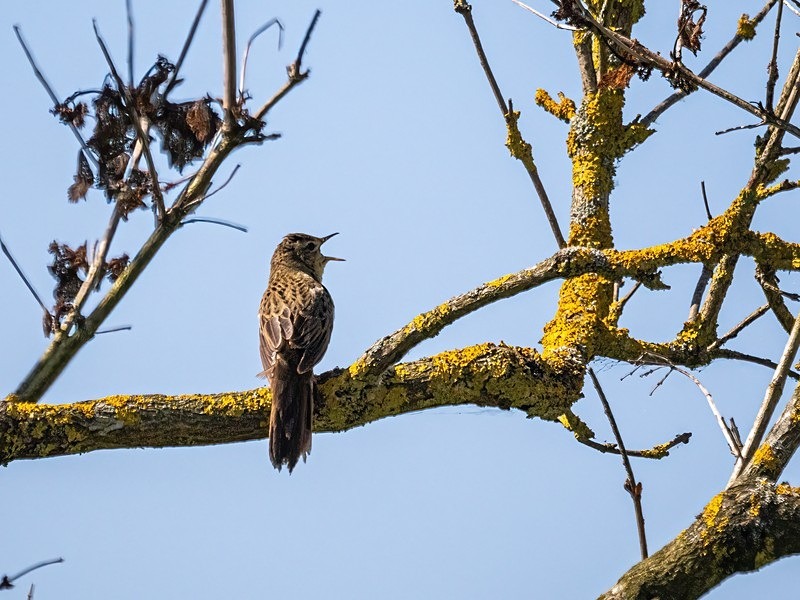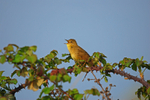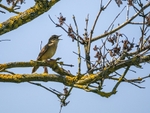Grasshopper Warbler

The Grasshopper Warbler is a medium-sized warbler with a streaked brown back with whitish grey underparts which are unstreaked except on the undertail.
Grasshopper Warblers are secretive and skulking birds most of the time and only really make themselves known by singing. The high, insect-like reeling song is the best clue to its presence but even when you hear one it can be difficult to locate it due to the ventriloquial effect of its singing.
Grasshopper Warblers may sing at any time during the day and night but singing birds are especially vocal around dusk and dawn. Males sing most when they first arrive on territory in April. When paired up the frequency of song declines but singing continues until July with short, sporadic bursts later in the summer.
A Grasshopper Warbler sings with its bill wide open and turning its head from side to side. This gives a ventriloquial effect and it is almost impossible to place exactly where the song is coming from and its intensity alters constantly. The reeling song is made up of double notes which are repeated at a rate of 25 per second. Reeling can last for 5 minutes with the smallest of pauses.
Grasshopper Warblers can be found scattered across the UK in areas of scrub, thick grassland, edges of reedbeds, new forestry plantations and gravel pits with plenty of scattered bushes. Birds arrive in mid April and leave again in August or September.
Date: 16th June 2023
Location: RSPB Strumpshaw Fen, Norfolk
Grasshopper Warblers are secretive and skulking birds most of the time and only really make themselves known by singing. The high, insect-like reeling song is the best clue to its presence but even when you hear one it can be difficult to locate it due to the ventriloquial effect of its singing.
Grasshopper Warblers may sing at any time during the day and night but singing birds are especially vocal around dusk and dawn. Males sing most when they first arrive on territory in April. When paired up the frequency of song declines but singing continues until July with short, sporadic bursts later in the summer.
A Grasshopper Warbler sings with its bill wide open and turning its head from side to side. This gives a ventriloquial effect and it is almost impossible to place exactly where the song is coming from and its intensity alters constantly. The reeling song is made up of double notes which are repeated at a rate of 25 per second. Reeling can last for 5 minutes with the smallest of pauses.
Grasshopper Warblers can be found scattered across the UK in areas of scrub, thick grassland, edges of reedbeds, new forestry plantations and gravel pits with plenty of scattered bushes. Birds arrive in mid April and leave again in August or September.
Date: 16th June 2023
Location: RSPB Strumpshaw Fen, Norfolk

|















